Unlikely pen pals: The blind boy and the major
- Published
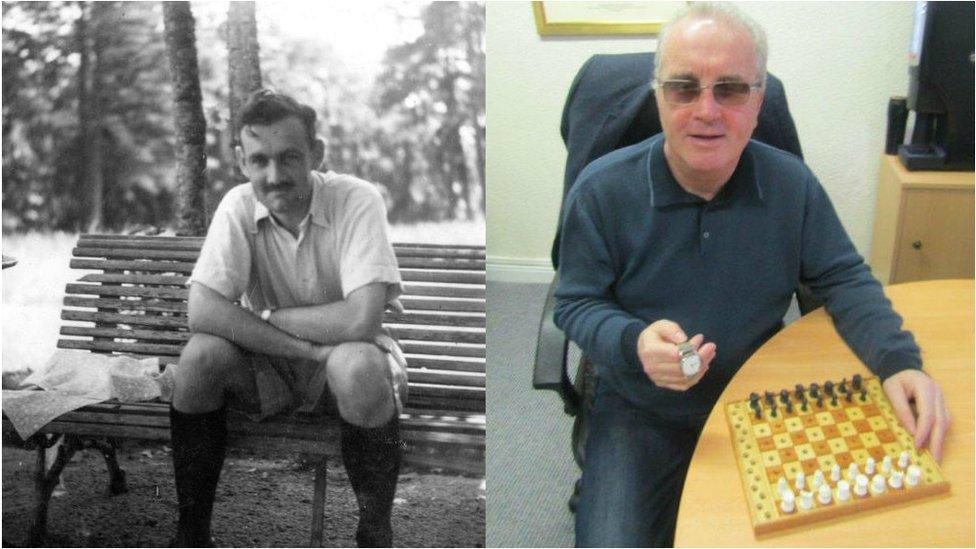
Major Rowland Bowen ( left) began writing to Richard Moore shortly after the Derry man was shot by the Army
A retired Army major seems an unlikely pen pal for a schoolboy blinded by a soldier's rubber bullet during the Troubles.
Major Rowland Bowen began writing to Richard Moore in the months after the 10-year-old was shot in 1972.
The schoolboy was blinded when he was hit by a rubber bullet in Derry.
Their correspondence has emerged after Mr Moore's story featured in Patrick Kielty's 'My Dad, the Peace Deal and Me'
Major Bowen's stepson Rikki Jodelko, who is also blind, recalls his father speaking of a little boy he wrote to who had been blinded by a soldier's bullet.
Mr Jodelko said he has never forgotten being told that his father had sent the child in Northern Ireland a Braille watch
"My wife saw the Patrick Kielty programme first and called me up. She said I think that might be the boy," he said.
"We certainly thought it was a very good chance that it might be him."
An email and follow up phone call from Mr Moore confirmed the hunch.
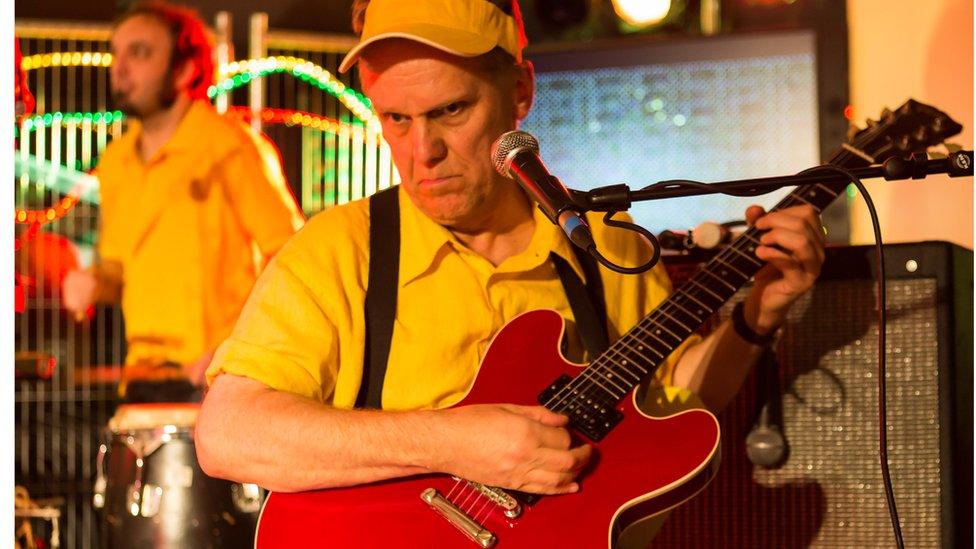
Rikki Jodelko is an enthusiastic guitar player like Richard Moore
The Derry man, whose uncle Gerard McKinney was among those killed on Bloody Sunday, said he was thrilled to hear from the Major's family.
"My uncle had been shot on Bloody Sunday, I had been blinded in May '72. Living in Derry's Creggan estate your view and opinion of the British army was not a very positive one.
"Then this letter arrived in from a retired British army major saying lovely things, being really empathetic, compassionate towards my mummy and daddy," he said.
The Major, it transpires, had at first corresponded with the schoolboy's parents, asking if it was okay for him to write to Richard himself.
Lots of letters followed, Mr Moore said.
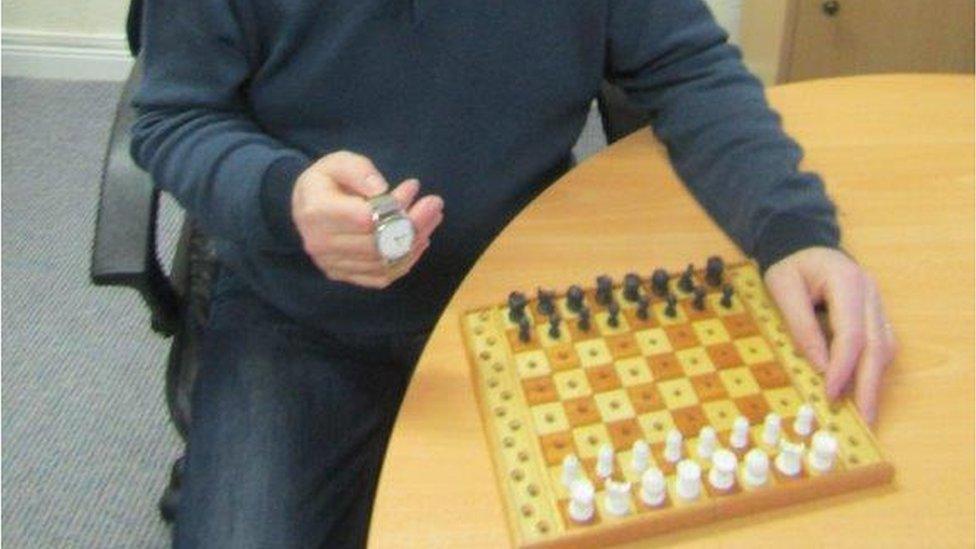
Mr Moore still has the Braille watch and chess board Major Bowen sent him
"Then the next thing the Braille watch arrived.
"That was a big thing, I had never seen or experienced anything like a Braille watch. When I got it, no matter who came into our house they asked 'What time is it Richard?'"
Soon a chess board - with raised black squares and sunken white ones - came in the post.
Once a month, the aspiring young guitarist received the top ten singles in the post from his new found pen pal.
"These were lovely gestures that meant so much to me and my family.
"It's wonderful to have the opportunity to thank Rikki personally," he said.
Mr Moore said that at the time he was unaware of the significance of their relationship.
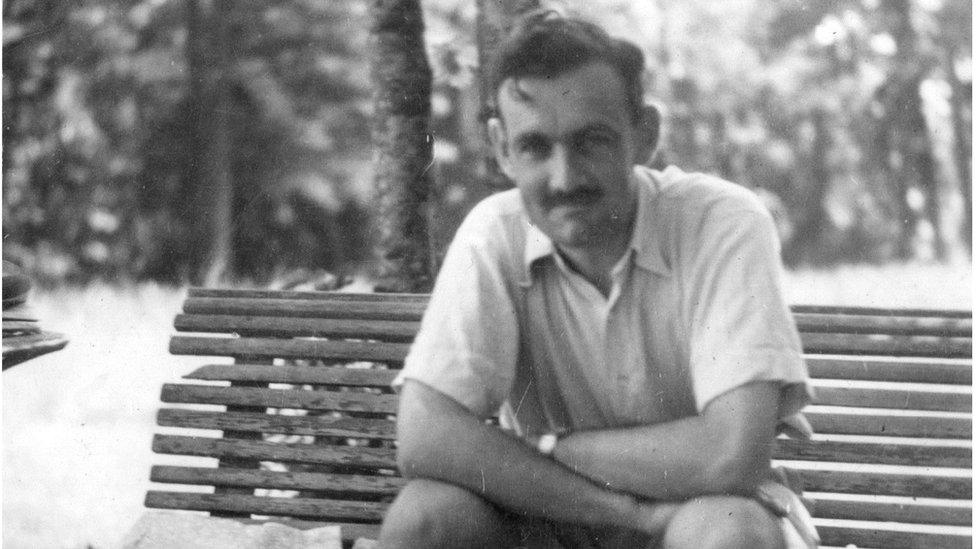
Major Bowen showed great compassion and empathy, Mr Moore said
"I was only 11 years of age then and I never spoke to him (Major Bowen) nor met him. It didn't come natural to me to be in correspondence.
"Major Bowen was one of those people who just came out of the woodwork - a British soldier who let you see a different side, it changed our perception
"It shows how my mummy and daddy were open to that and they talked about him quite a lot ," he added.
"It's only in later life you begin to think about all those people that played such a significant role back then - and I really mean this - the reason I started Children in Crossfire is because I wanted to give something back," he added.
The charity Mr Moore established promotes early childhood care and development in some of the poorest countries in the world.
Major Bowen's stepson said his father would have "wholeheartedly supported."
"My father would have been so pleased about Children in Crossfire," Mr Jodelko said.
In 2007 Mr Moore met the soldier who shot him, external. He has since maintained a friendship with the man whom he has come to forgive.
Mr Jodelko said watching the Patrick Kielty documentary showed what type of man the little boy from Derry had grown to become.
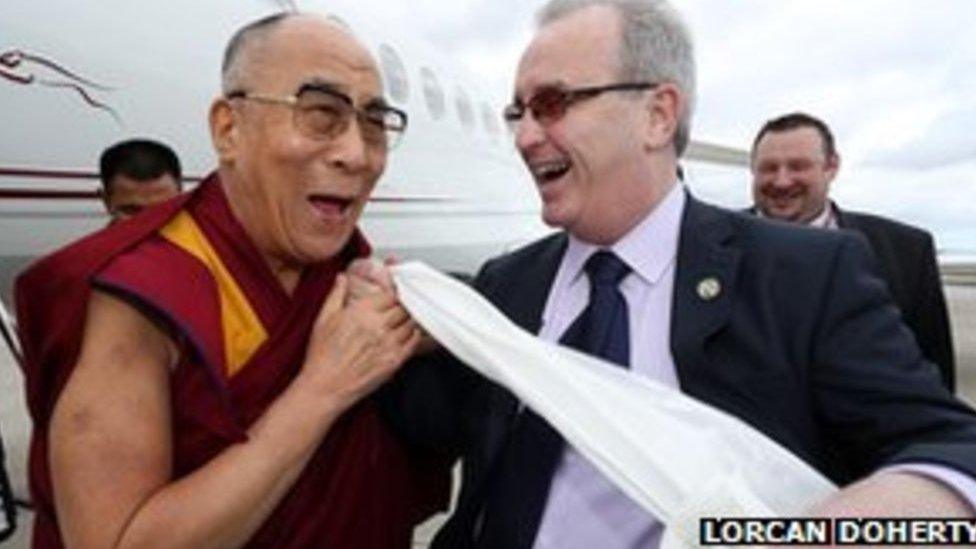
The Dalai Lama is a patron of Mr Moore's Children in Crossfire charity
"The important thing Richard was saying and discussing with Patrick Kielty was forgiveness, how important it is for the wronged person to move on. Long before Richard founded Children in Crossfire he had forgiven the person who had blinded him.
"Richard and I have now had a long and enjoyable chat, found out we are both guitarists, I've heard about the charity and the Dalia Lama (a patron of Children in Crossfire).
"Hopefully this is the start of a happy and interesting friendship," he said.